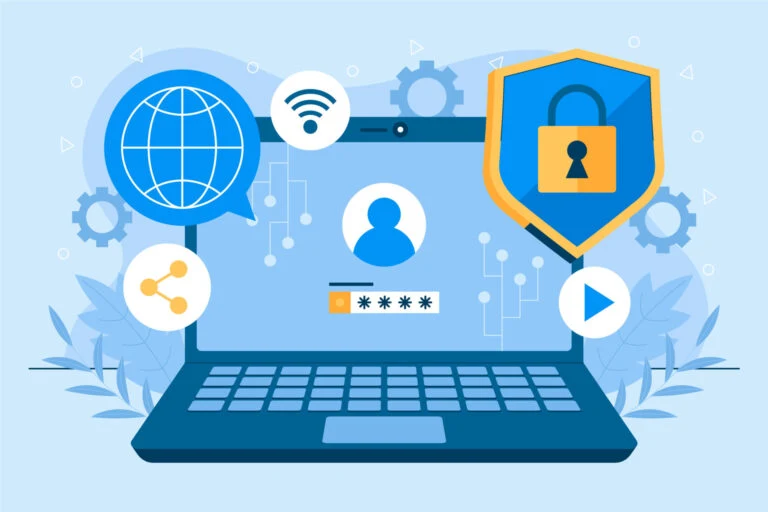Data Security and Compliance in E-commerce Platforms
How Custom E-commerce Solutions Improve Customer Experience
In today’s highly competitive e-commerce landscape, providing a seamless and personalized shopping experience is crucial for attracting and retaining customers. Custom e-commerce solutions have emerged as a powerful tool for businesses looking to improve customer experience and drive growth. By tailoring online platforms to meet the unique needs and preferences of individual users, companies can enhance user satisfaction, foster trust, and ultimately boost sales. This article delves into the world of custom e-commerce solutions, exploring how they can revolutionize the way businesses engage with customers and elevate the overall shopping journey.

1. Data Security and Compliance Overview of E-commerce Platforms
Data security and compliance are two major pillars of all e-commerce platforms, giving a secure atmosphere for guarding sensitive customer information and building confidence in online transactions. With the growing threat of cyberattacks, fraud, and data breaches, the e-commerce industry must embrace strong IT solutions and cybersecurity techniques such as SSL encryption, firewalls, secure payment gateways, and tokenization of sensitive information. Managed IT services, cloud computing, and professional IT support can dramatically improve overall network security and system durability. Compliance with industry standards like PCI-DSS, GDPR, and other local data protection laws is required to avoid legal complications and maintain customer trust. Working with experienced IT consulting firms or IT service providers ensures that businesses stay compliant with evolving security protocols. By actively protecting client information and adhering to regulatory patterns, online shopping sites can offer a safe virtual shopping environment which creates long-term brand loyalty, reduces operation risks, and promotes sustainable progress through efficient software development and cutting-edge IT services.
Definition of Data Security and Compliance
Data protection within e-commerce involves implementing robust cybersecurity, network security, and IT to protect confidential data. Compliance involves adhering to data protection legislation through specialist IT consultancy, IT support, and secure software development. Use of cloud computing, managed IT services, and reputable IT support ensures confidentiality, security, and compliance.
The Intersection of Data Security and Compliance in E-commerce
the convergence of data security and compliance within e-commerce in e-commerce, compliance and data security are essential to protect the data of customers, payment records, and business data. there needs to be robust cybersecurity, network security, and good it solutions that need to be implemented to ensure the confidentiality of sensitive data. compliance with regulatory needs through the use of it consulting, cloud computing, it services, managed it services, it support.net
2. Significance of Data Security for E-commerce Sites
Data protection is essential for e-commerce websites since it safeguards sensitive customer information such as personal information, payment details, and transaction history. In an era where data breaches and cyber attacks become increasingly common, a secure online shopping experience offered by reliable IT solutions is a must to ensure customer trust and maintain business reputation. Implementation of advanced security measures like encryption, secure payment processing gateways, firewalls, multi-factor authentication, and high-level network security keeps hackers at bay and frauds at bay. Moreover, strong data security processes—augmented by IT consulting, cloud computing, IT services, and managed IT services—not only make regulatory compliance based on standards like PCI-DSS and GDPR possible but also increase the overall reputation of the platform. With professional IT support and secure software development, keeping data protection as a top priority is key to creating customer loyalty, ensuring uninterrupted business operations, and facilitating long-term growth.

Essential data handled by e-commerce sites
E-commerce sites are required to handle huge volumes of sensitive data, including customers’ personal information, payment card number data, and transaction records. Protection of this data ensures customer confidence and credibility is not lost.
Impact of Data Breaches on E-commerce Businesses
Data breaches can be devastating for e-commerce businesses, causing financial loss, legal consequences, and damage to reputation. Customers are less likely to trust a site with their information after a breach, resulting in loss of sales and potential long-term harm.
3. Regulatory Compliance Requirements for E-commerce
Regulatory compliance is a critical aspect of operating an e-commerce business, with sites ensuring that they comply with legal requirements and industry standards in order to protect consumers and maintain operational integrity. E-commerce companies are required to comply with a variety of requirements, such as data protection regulations like the General Data Protection Regulation (GDPR), Payment Card Industry Data Security Standard (PCI-DSS) for handling secure payment data, and local consumer protection laws covering return conditions, disclosure of product details, and taxation. In addition, based on the market regions, companies are required to meet obligations under electronic transaction rules, digital signatures, and cross-border trade. Non-compliance with these compliance obligations may lead to legal penalties, reputational harm, and loss of customer trust. Therefore, being informed and current with regulatory expectations is essential in creating a compliant, credible, and scalable online business. Online stores operating within the European Union must comply with the General Data Protection Regulation (GDPR) that governs customer information privacy and protection. Non-compliance with GDPR can result in huge fines and penalties.
GDPR Compliance for E-commerce
PCI DSS compliance is essential for e-commerce websites that handle payment card information. PCI DSS compliance ensures cardholder information is secure and protected against cyber attacks.
PCI DSS Compliance for Payment Processing
Encryption techniques such as SSL/TLS protocols and data encryption in transit and at rest protect the data from unauthorized access. Encryption processes convert sensitive information into unreadable data, and it is secure from peeping eyes.

4. Measures for Data Security in E-commerce
Encryption Techniques for Protecting Data
Utilizing secure modes of authentication like multi-factor authentication (MFA) and strong password policy offers an extra layer of protection for e-commerce user accounts.
Secure Authentication Processes for User Login
Employing secure types of authentication like multi-factor authentication (MFA) and strong password policy offers an additional layer of security for user accounts on online stores. Strong authentication processes prevent unauthorized use and improve overall data security.
5. Issues and Risks Involved in Ensuring Data Security
New E-commerce Data Security Threats
New E-commerce Data Security Threats Employing secure modes of authentication like multi-factor authentication (MFA) and strong password policy gives an additional layer of security to user accounts on online shopping websites.
Balancing Security Measures with User Experience
While it is a requirement to implement robust security controls, it is also as important not to compromise the seamless user experience customers have grown to anticipate in the process. Achieving the golden mean between convenience and security is a challenge most e-commerce sites find difficult to master.
6. Best Practices for Achieving Compliance in E-commerce
Regular Audits and Assessments for Compliance
Regular audits and assessments to verify compliance with industry standards and regulations are crucial to data security. Such a proactive measure can assist in detecting vulnerabilities and security protocol gaps before they escalate into compliance problems.
Employee Training on Data Security Protocols
Empowering employees with training on data security best practices and protocols can significantly enhance your e-commerce platform’s compliance efforts. Educating staff on the importance of data security and their role in safeguarding sensitive information is critical for overall compliance.
7. Data Breach Incident Response and Management
Developing a Data Breach Response Plan
Having a thorough data breach response plan in place in advance can make it easier to reduce the impact of an incident of security. Knowing a well-defined plan of action for responding, containing, and recovering from a data breach will make managing incidents more effective.
Communicating Effectively During a Data Breach
Transparent and timely communication with customers, stakeholders, and regulatory bodies during a data breach is crucial for maintaining trust and credibility. Developing a communications strategy that raises concerns and keeps stakeholders informed can make it easier to reduce the blowback from an incident of security.
8. Future Trends in Data Security for E-commerce Platforms
AI and Machine Learning for Enhanced Security
The combination of AI and machine learning technologies can support the security initiatives of e-commerce platforms by identifying anomalies, anticipating threats, and automating responses. Utilizing these sophisticated tools can improve data protection and threat detection capabilities.
Blockchain Technology for Secure Transactions
Blockchain technology offers a decentralized and secure way to conduct transactions, providing an added layer of protection against fraud and unauthorized access. The use of blockchain-based IT solutions can transform the data security of e-commerce platforms and protect sensitive data effectively. Finally, giving top priority to data security and compliance within e-commerce sites is not merely a case of adhering to regulatory requirements but also ensuring customer trust and loyalty. By making use of state-of-the-art cybersecurity, network security, and IT services backed by skilled IT consulting, cloud computing, and managed IT services, companies can remain ahead of the game. With robust IT support and secure software development processes, e-commerce companies can strengthen their defenses and maintain the integrity of their operations. As the online environment continues to evolve, being watchful and adopting cutting-edge IT solutions will be crucial in having a secure and compliant e-commerce environment for all parties involved.



